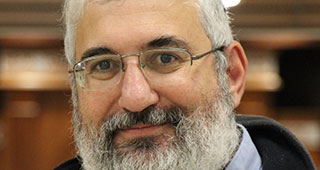71
Ein Ayah: The more a person is able to fill his internal perceptions with beauty and splendor, the more he and his imagination, which is the base of his intellect, become elevated. It becomes holy and refined until he is able to receive moral and intellectual splendor. The opposite is similarly true. The perceptions of disgusting things that cause distress to the natural beauty of the spirit, which Hashem created in an upright manner, weaken a person’s imagination and blur his moral and intellectual understanding.
All of Hashem’s creations are fully beautiful and splendid, for they all come from a source of splendor, eternity, and glory. However, although this is true, this completeness is only perceptible if a person would be able to incorporate in his understanding all of creation, from beginning till the end. Only then would he be able to understand the beauty and place of everything in creation, and everything would have honor and grace. However we have limited vision and understanding, and therefore there is a great difference between what has splendor and what is unsightly. Not everything one sees in this limited scope will create a vision of splendor, for there are things that will bring disgust to a person, even though in their truest sense, they are really good.
Therefore a person who must nourish his soul, with that which is fitting and healthy for it, must relate to his surroundings with care and caution, letting only the things that will impact him in a positive way be seen by his eyes. He must distance himself from lowly sights that will lessen his soul, so that only the good and the splendid remain in his mind.
When a person fills his soul with grace until it becomes part of his natural makeup, his eyes naturally see only that which is splendid and not that which is disgusting to him considering his limited perspective. This is true both for things which he notices with his physical senses and those he notices with his intellect. For this, the trait of tzniut helps a person focus only on the good and splendid and distance him from the unsightly. It is not that the good that he cannot see disappears, but it is covered from his sight. This is the purpose of the trait of tzniut.
A woman’s attribute of tzniut is to not allow that which should not be seen to be visible. A man’s tzniut is to not let the eye see that which will not bring splendor to his perception. When a person’s tzniut is all encompassing, it extends to removing the unsightly in the realm of the intellectual and moral as well. When he has a more technical reason to remove something from sight, the phenomenon can sometimes cause a weakening of the spirit. Then, while being correct, it is not fully elevating and is not the depth of tzniut, which emanates from a pure inclination. Technical tzniut will not last forever. Therefore, Rav was impressed with the woman’s tzniut, in that her husband never came to notice it.
The depth of tzniut is to look just at the good and advantageous so that he is beyond that which causes negativity in a person. A person possessing such a nature will not notice that which is a blemish, even if it is right before him. He will notice the good that is visible to one who sees a broad picture of the grand existence of the world. This was the tzniut of the husband who did not discern any blemish in his wife.

Clean For Pesach And Enjoy The Seder
Rabbi Chaim Pinchas Scheinberg zt"l | 5770
Soaps and Cosmetics Kosher for Passover? (And a review of Pesach laws)
Rabbi Eliezer Melamed | 5575
Pondering Passover
Part 1
Rabbi Eliezer Melamed | Adar 5761








